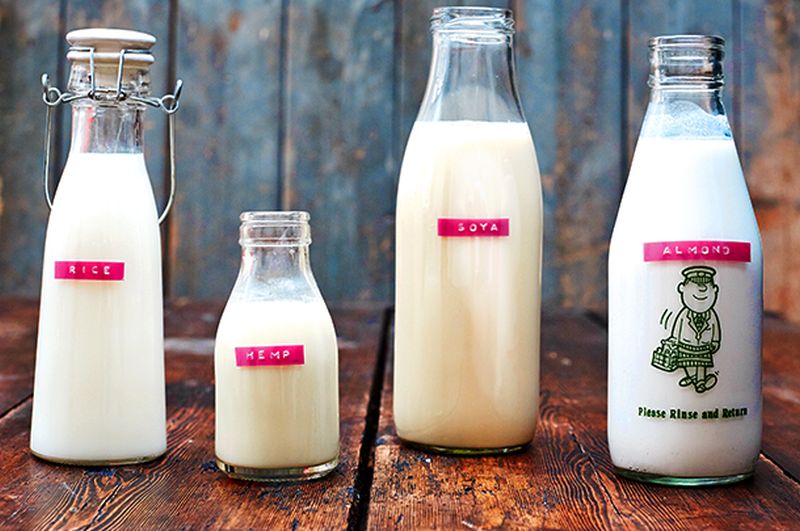Plant-based milk
Plant-based milk alternatives disrupt dairy

The humble oat doesn’t exactly ooze Instagrammable cool. Yet it is fast becoming the star in trendy coffee shops, favoured by baristas as their faux milk of choice thanks to its «mouthfeel», taste and ability to foam and be swirled into «latté art». Demand for alternatives to dairy has accelerated over the past six months, says Robert Robinson, the co-founder of Notes, one coffee chain in London where oat milk has become the firm favourite over soya and almond. «It works so well with the acidity of espresso and just tastes better,» he adds.
Plant-based milks are booming as consumers seek to eliminate dairy from their cereal bowls and coffee cups, mostly for health, welfare or environmental reasons. A survey by Mintel, a research firm, found that half of a sample of Americans bought non-dairy milk over the past three months. Last year Britain’s Office for National Statistics added non-dairy milk as a subsection of mainstream goods in its consumer-price index—a sure sign that the trend is here to stay. Innova Market Insights expects the global market to surpass $16bn in 2018.
As consumers separate the wheat from the chaff, soya, the original alt milk, has been losing market share. Experiments with peas, pecans and flax all had their problems. Almond milk, an established favourite in America, suffered when its environmental credentials were questioned; one almond requires five litres of water to produce.
Oat milk’s environmental footprint is modest by comparison and its health properties are solid. Albeit from a low base, sales in Britain grew last year by 76%, according to Nielsen, compared with 24% for coconut (also a newcomer), 14% for almond and 5% for soya milk. Europe’s leading producer, Oatly, has made the drink for decades, though mostly just for people with dietary restrictions. After it revamped its branding a few years ago and decided to appeal to consumers via baristas rather than retailers, «the snowball just started rolling and hasn’t stopped,» says Ishen Paran, a spokesperson. Customers started demanding supermarkets stock it, first in Europe and now in America. It all led to an oat-milk drought in late 2017, with prices on Amazon soaring as well-off parents scrambled for the goods. A sure sign of a fad, critics scoffed.
The dairy sector would certainly like to think so. It is lobbying for protection in Europe and America and promoting educational campaigns such as #MilkTruth. Last year the European Court of Justice ruled in its favour and forbade the use of terms such as «milk» and «butter» for plant-based products, which now call themselves «drinks». Producers in America want the same. In July Scott Gottlieb, head of the Food and Drug Administration, said the agency would clarify what could be marketed as milk, adding that «an almond doesn’t lactate, I’ll confess.» Not all dairy firms are resisting. Some, to their credit, have brought out lactose-free or dairy-free products. Following the consumer, after all, is usually the best route to a cash cow.
